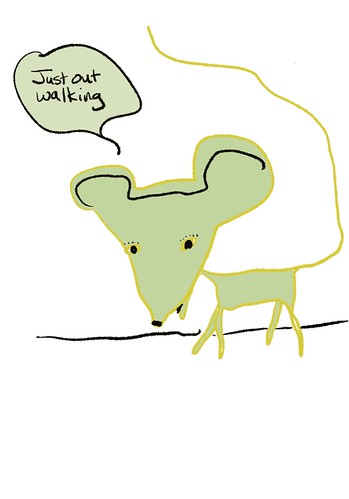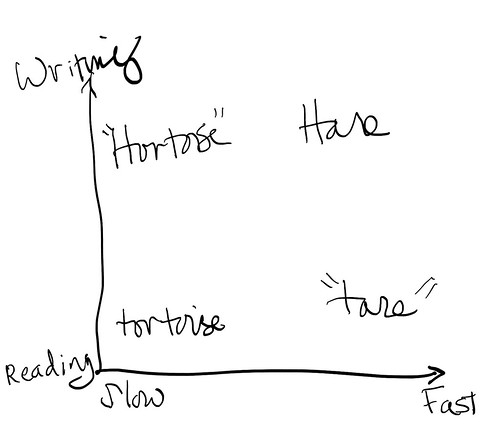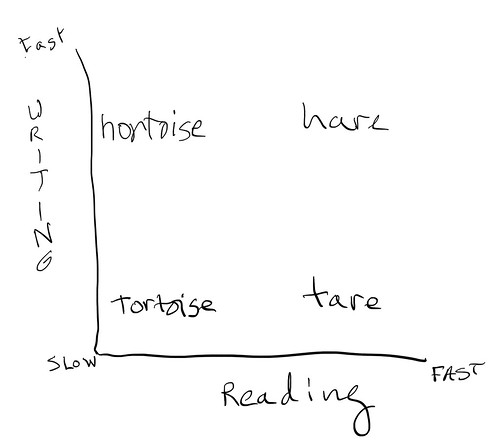
... get going.
Strewed over with hurts since 2004

In the book, you write that you and Trump recognized each other at Bergdorf’s, talked playfully about what gift he might buy for a woman and ended up in the lingerie department, challenging each other to try on a lilac bodysuit. It was there that you claim he pushed you against the wall, pulled down your tights and put his penis inside you. But why would you go into the dressing room with him in the first place?Wouldn't he think that sex was in the offing, even if she's "stamping on his feet, and I think I’m banging him on the head with my purse." I heard in the NYT podcast (blogged here) that she laughed the whole time and never said a word — no "no" or "don't" or "stop." What was in his head? You won't hear it from him, because he's taken the position that it never happened at all.
In January, a reporter contacted the nascent Biden campaign to request an interview. She wanted to ask the former vice president about lingering criticisms that were bound to come up on the trail: how, as a senator, he failed Anita Hill; his lead role in the 1994 crime bill; his vote for the Iraq war; his mixed record on abortion rights; his handsy ways; the hot mess that is Hunter.From "Kamala Shotguns Joe Sixpack" (NYT).
And that little girl was me.
To shotgun a beverage [usually a beer], a small hole is punched in the side of the can, close to the bottom. In order to prevent the liquid from spilling out while the cut is made, the can is held horizontally and the hole is made in the resulting air pocket. The hole can be made with any sharp object—typically a key, bottle opener, pen or knife. The drinker then places their mouth over the hole while rotating the can straight up. When the can's tab is pulled, the liquid will quickly drain through the hole into the drinker's mouth.That's what we're invited picturing Kamala Harris doing to Joe Biden?! Okaaay. I love that the Wikipedia "Shotgunning" article is illustrated with a photograph of a woman:

The term “tomboy” has long sounded alarms among conservative parenting factions for its perceived association with lesbianism and departure from traditional femininity...With my memories of childhood, I wondered if that's true. Do conservatives look askance at tomboys? I haven't consorted with many conservatives in the last 50 years, but, growing up, it seemed that people were pleased to see a tomboy. I heard pride. So I clicked that link on "conservative parenting factions" and got:

... come under scrutiny in progressive circles, too, with some critics arguing that it upholds the essentialist notion that anatomy largely determines children’s behaviors and inclinations. The author of a 2017 New York Times essay who wrote that her daughter was more a tomboy than a transboy sparked debate around gender-nonconforming children, and the argument about this trope has also unfolded across Facebook communities and clinical studies.Yes, I blogged about that 2017 article ("My Daughter Is Not Transgender. She’s a Tomboy," by Lisa Selin Davis). I said:
Davis is trying so hard to be politically correct, and everything she writes is so scrupulously polite. But in the process she's shedding light on an important problem: More pliable parents and children are being urged to interpret gender-role fluidity/nonconformity as a condition that needs treatment with medical interventions.Stahl, in the WaPo column, is bringing up this topic because there's another Hollywood adaptation of "Little Women" in the works, and "Little Women" has a character, Jo, and she's explicitly called a tomboy. From Chapter 1:
"Jo does use such slang words!" observed Amy, with a reproving look at the long figure stretched on the rug.These 4 female stereotypes, so crisply reeled out in Chapter 1, are seared into the American mind. I remember reading that, and I thought it was obvious that the one to be was Beth (who's so good it's — spoiler alert — the death of her). But then I thought it was obvious that the best Stooge was Curly, but our local tomboy loved Moe.
Jo immediately sat up, put her hands in her pockets, and began to whistle.
"Don't, Jo. It's so boyish!"
"That's why I do it."
"I detest rude, unladylike girls!"
"I hate affected, niminy-piminy chits!"
"Birds in their little nests agree," sang Beth, the peacemaker, with such a funny face that both sharp voices softened to a laugh, and the "pecking" ended for that time.
"Really, girls, you are both to be blamed," said Meg, beginning to lecture in her elder-sisterly fashion. "You are old enough to leave off boyish tricks, and to behave better, Josephine. It didn't matter so much when you were a little girl, but now you are so tall, and turn up your hair, you should remember that you are a young lady."
"I'm not! And if turning up my hair makes me one, I'll wear it in two tails till I'm twenty," cried Jo, pulling off her net, and shaking down a chestnut mane. "I hate to think I've got to grow up, and be Miss March, and wear long gowns, and look as prim as a China Aster! It's bad enough to be a girl, anyway, when I like boy's games and work and manners! I can't get over my disappointment in not being a boy. And it's worse than ever now, for I'm dying to go and fight with Papa. And I can only stay home and knit, like a poky old woman!"
And Jo shook the blue army sock till the needles rattled like castanets, and her ball bounded across the room.
"Poor Jo! It's too bad, but it can't be helped. So you must try to be contented with making your name boyish, and playing brother to us girls," said Beth, stroking the rough head with a hand that all the dish washing and dusting in the world could not make ungentle in its touch.
"As for you, Amy," continued Meg, "you are altogether too particular and prim. Your airs are funny now, but you'll grow up an affected little goose, if you don't take care. I like your nice manners and refined ways of speaking, when you don't try to be elegant. But your absurd words are as bad as Jo's slang."
"If Jo is a tomboy and Amy a goose, what am I, please?" asked Beth, ready to share the lecture.
"You're a dear, and nothing else," answered Meg warmly, and no one contradicted her, for the 'Mouse' was the pet of the family.
It’s a process that constricts their characteristic independence, and it can feel torturous for those of us who don’t identify with traditional femininity — and who see something of ourselves in fictional figures who reject it. Empathetic viewers might want to see a character embrace her singleness, even if an actual lesbian pairing is too much to hope for.Isn't that inviting disturbing associations with real-life medical practices that 'correct' hormones in transgender youths? Speaking of correct, I'm assuming Stahl wants to be politically correct (and she does inject some pro-transgender material near the end, the maximum distance from this disapproval of hormone "correction").
The attempt to fix the tomboy by marrying her off invites disturbing associations with real-life medical practices that “correct” high levels of hormones associated with masculine characteristics.
If we want greater gender autonomy, we have to understand how traditional ideas about gender linger in the stories we tell and the endings we envision for ourselves. Beyond resisting gender norms, tomboys give us a way to see the complex dynamics that shape our expression and perception of identity. And even if the word “tomboy” is reaching its own ending, the tomboy’s refusal to conform keeps its power still.I still don't see why "tomboy" must die. If you like this character type, why not keep it alive? Beth may have — spoiler alert — died of her own overflowing dearness, but doesn't the tomboy have the wherewithal to survive?


“Nothing to be Frightened Of”The one chosen for my age, 68, is something I've already read, “The Year of Magical Thinking” by Joan Didion ("Grief can make you feel like you’re losing your mind. That’s normal").
BY JULIAN BARNES
Don’t avoid the big questions of life and death and faith: Tackle them straight on with help from some of the greatest thinkers.
The Tortoise and the HareGladwell is himself a "tortoise" — a slow reader — and he doesn't like the way his kind are disadvantaged on the LSAT.
A weird speech by Antonin Scalia, a visit with the some serious legal tortoises, and a testy exchange with the experts at the Law School Admissions Council prompts Malcolm to formulate his Grand Unified Theory for fixing higher education.


"Go fuck yourself" sounds like an especially apposite response here https://t.co/aW8ZjCq4tb— Cathy Young (@CathyYoung63) June 28, 2019
“Is it okay if I imagine you naked?”
Her hand stops and she looks me in the eyes.
“You want to imagine me naked while we’re doing this?”
“Yeah. I’ve been trying to keep from imagining that, but I can’t.”
“Really?”
“It’s like a TV you can’t turn off.”
She laughs. “I don’t get it. You didn’t have to tell me that! Why don’t you just go ahead and imagine what you want? You don’t need my permission. How can I know what’s in your head?”
“I can’t help it. Imagining something’s very important, so I thought I’d better tell you. It has nothing to do with whether you know or not.”
“You are some kind of polite boy, aren’t you,” she says, impressed. “I guess it’s nice, though, that you wanted to let me know. All right, permission granted. Go ahead and picture me nude.”
"Thanks," I say.
Clearest MRI of pregnancy ever recorded. This is crazy.pic.twitter.com/7IHJpxfrAQ
— Liz Wheeler (@Liz_Wheeler) June 28, 2019
this is weirdly terrifying pic.twitter.com/abMf7nSuRj
— andrew kaczynski (@KFILE) June 28, 2019
A political campaign is also a chance to exhume everything a candidate has said in her career, from all the tweets to exactly what she meant 30 years ago when she called herself a “bitch for God” at a charity event.And click through to the thread here...
“I think it’s fair to say I wish I had never said that. Something was going on many years ago, in a situation that had to do with some AIDS patients. I would open my course with a prayer. There was something we were doing, and somebody was saying, ‘Marianne, I don’t think we should open with a prayer.’ And I said, ‘No, I think we should open with a prayer.’ And I was getting all this resistance to opening with a prayer. And they said, ‘You’re being a real bitch about this.’ And I said, ‘If I’m a bitch, I’m a bitch for God,’” Ms. Williamson said. “I think it was something about fund-raising, and some very chic people in Manhattan who were going to be there. And I just took umbrage at the idea, whatever.”
Her call for reparations, maybe the most radical yet timely point of her policy proposals, isn’t new to her either. She has been talking about it since the publication of her mid-1990s book, “Illuminata,” and she says that without it, America’s racial and economic divide will never heal.
AMAZING OLD TWEETS BY PRESIDENTIAL CANDIDATE MARIANNE WILLIAMSON: A THREAD
— Ellie Hall (@ellievhall) June 28, 2019
Everyone feels on some level like an alien in this world, because we ARE. We come from another realm of consciousness, and long for home.That's a Marianne Williamson aphorism. She also wrote:
You're a lamp; God is the electricity. You're a faucet; God is the water. You're a human; God is the divine within you. ALLOW the flow.As Kirsten Gillibrand might say: The woman is on fire!